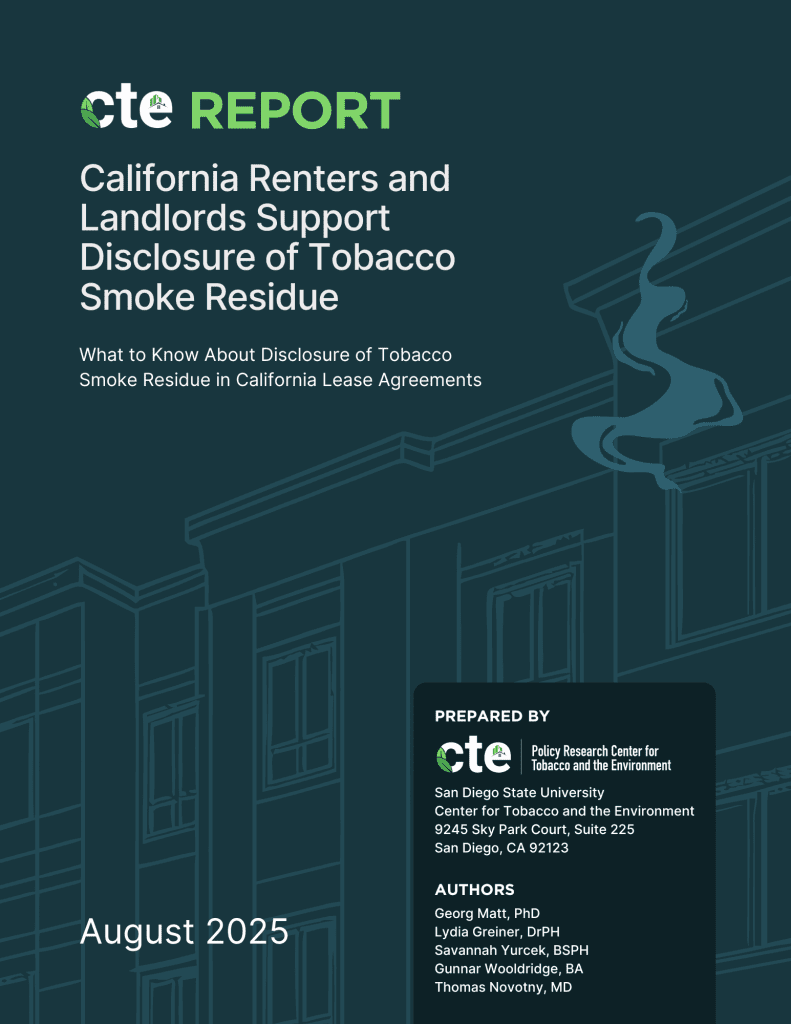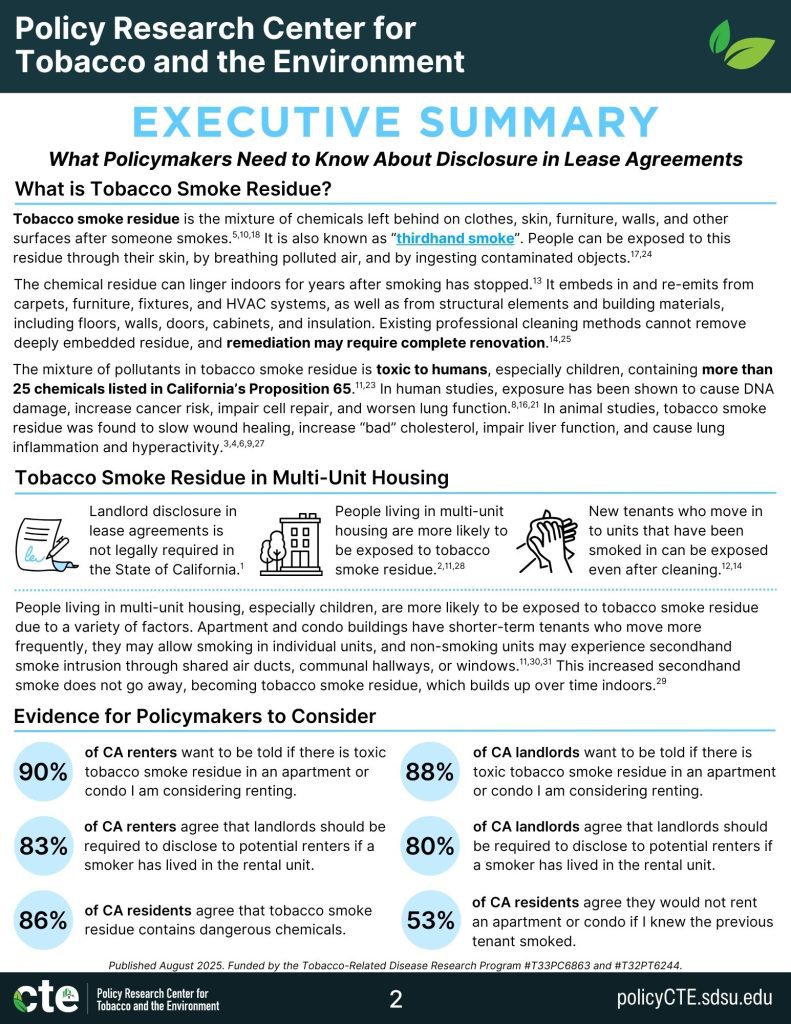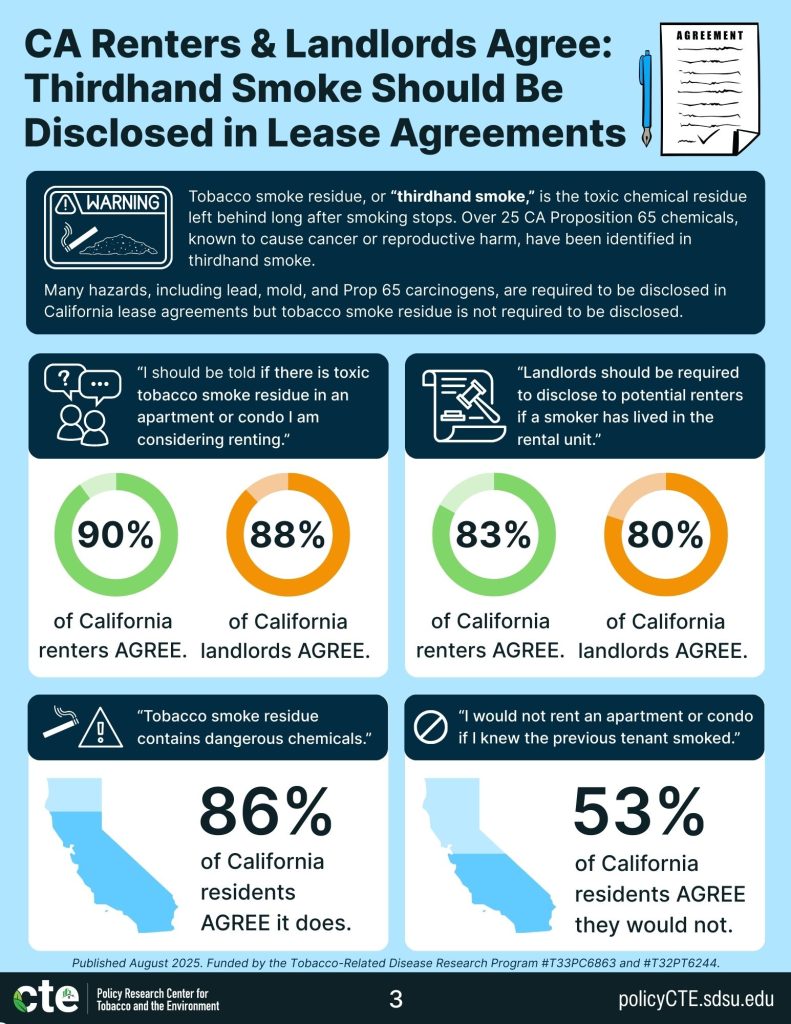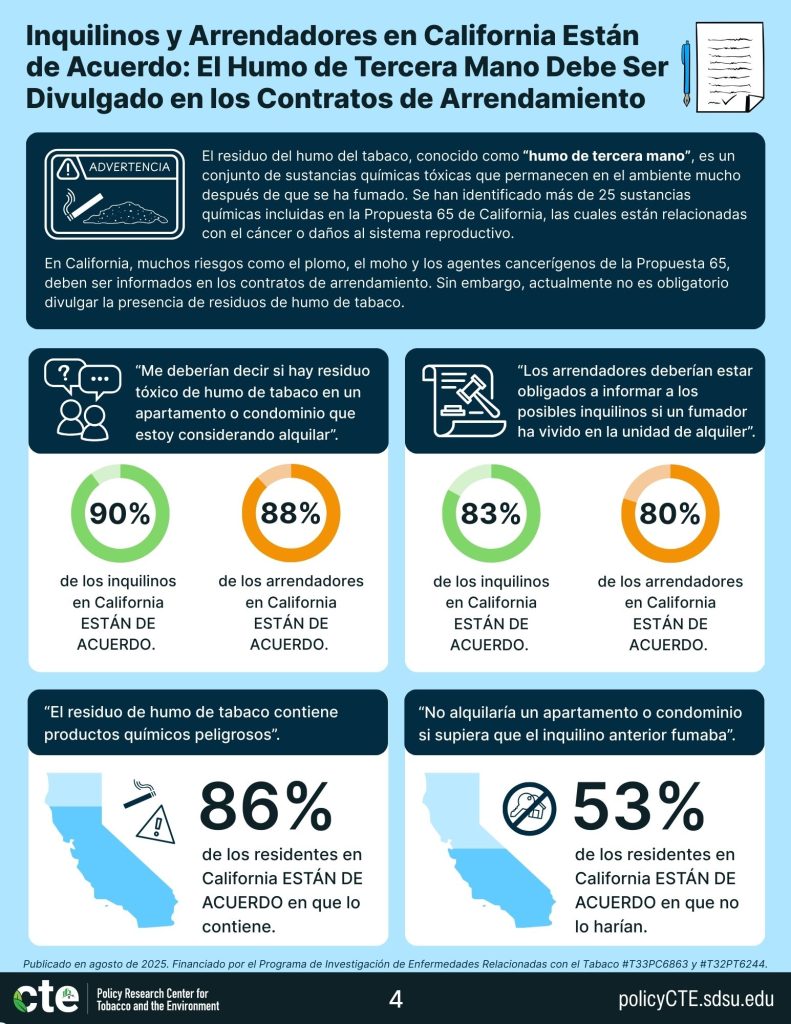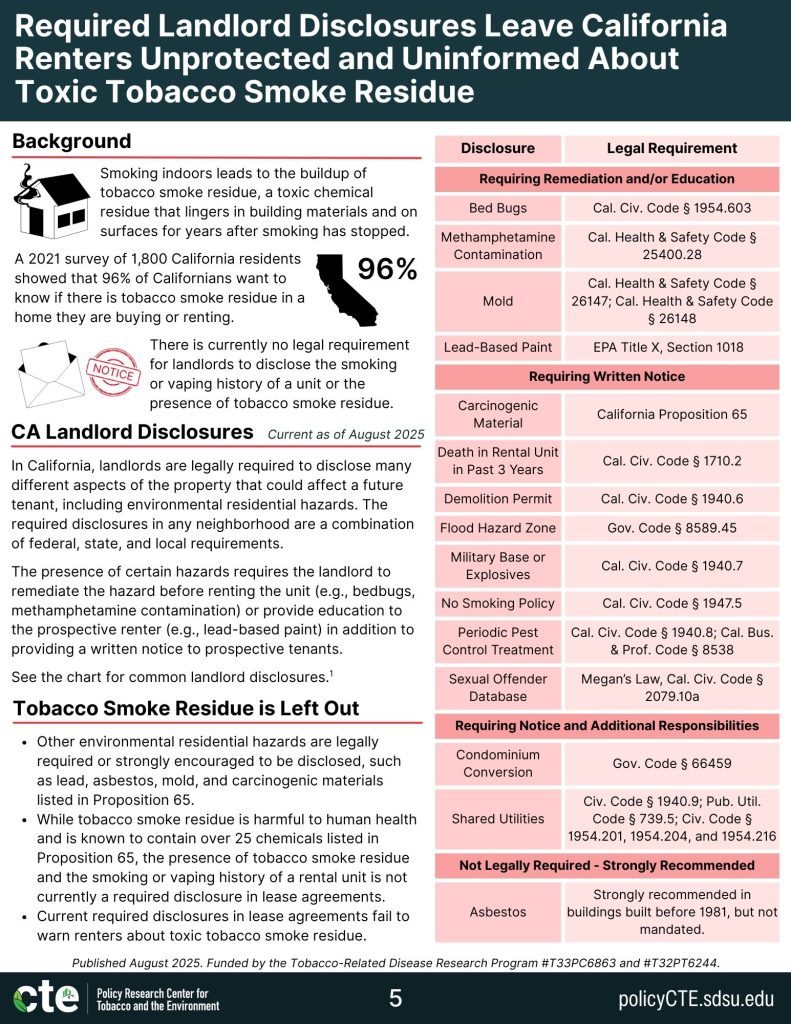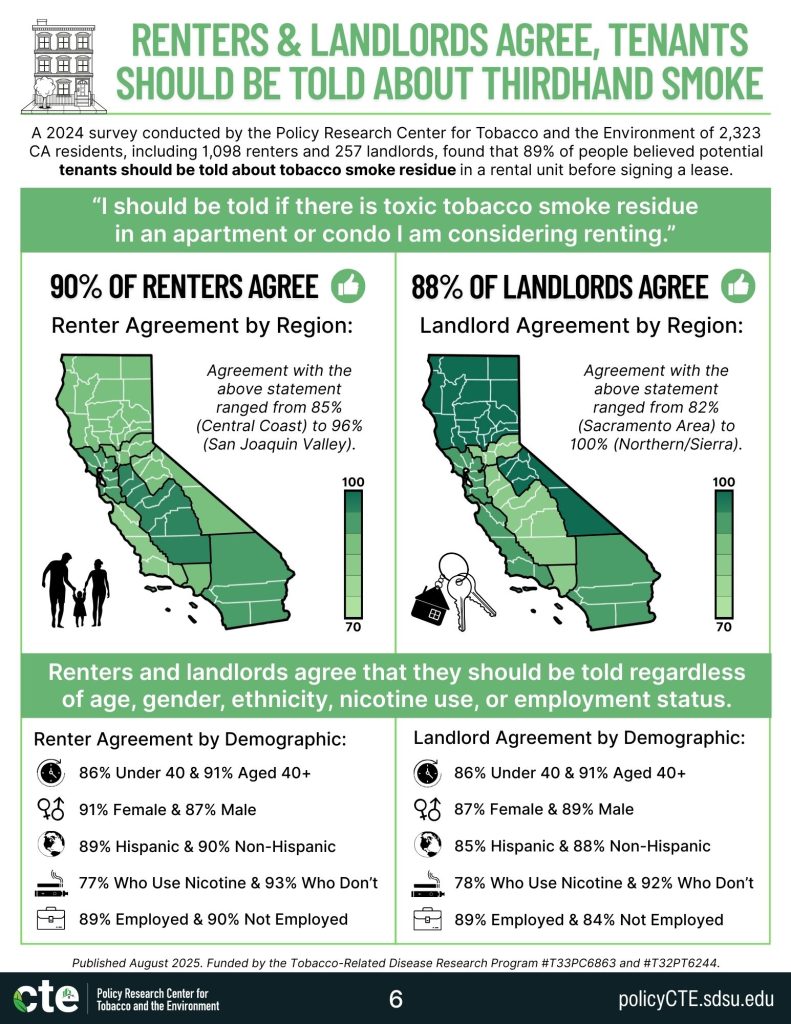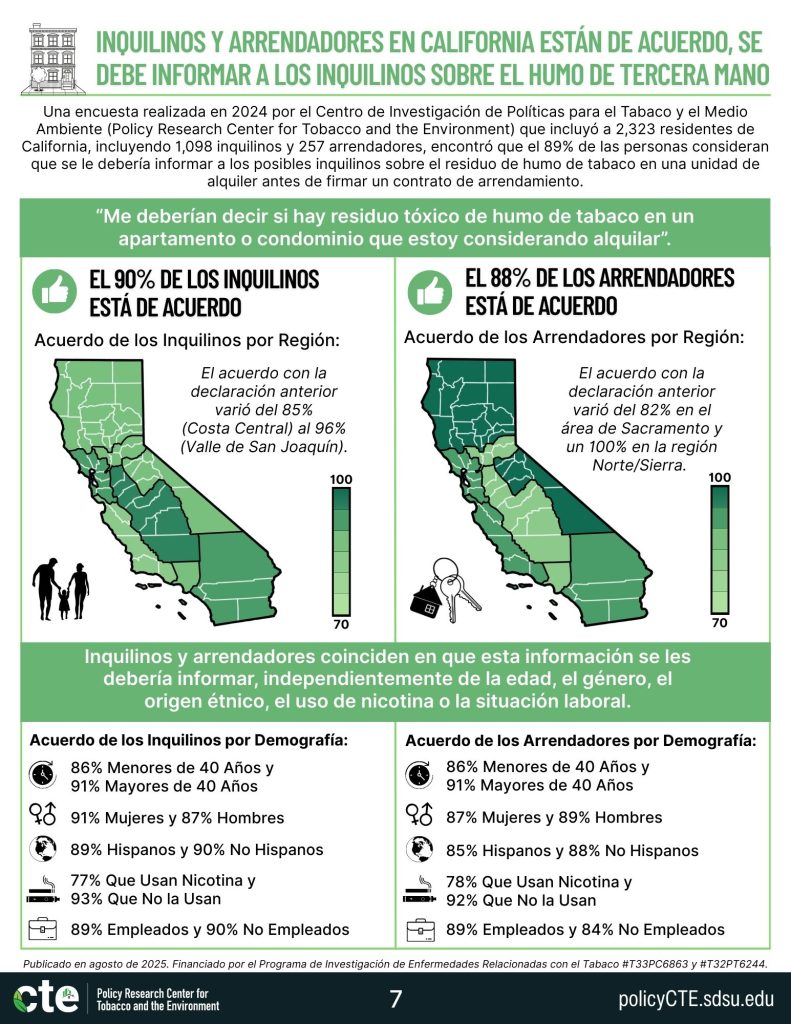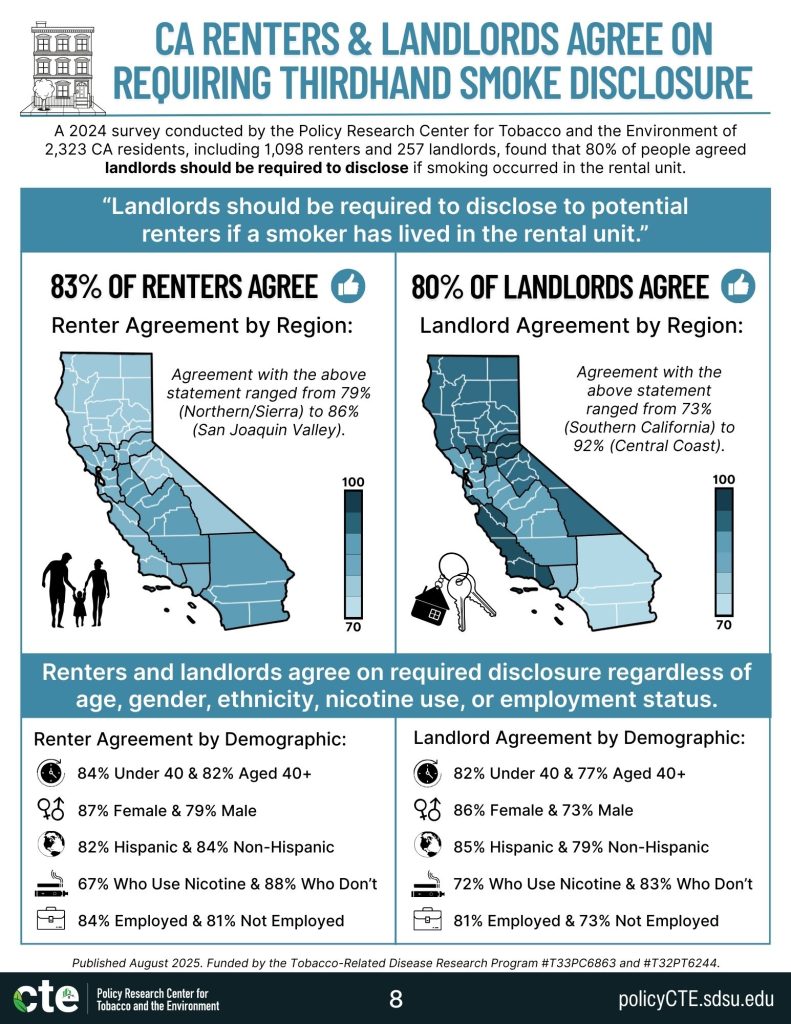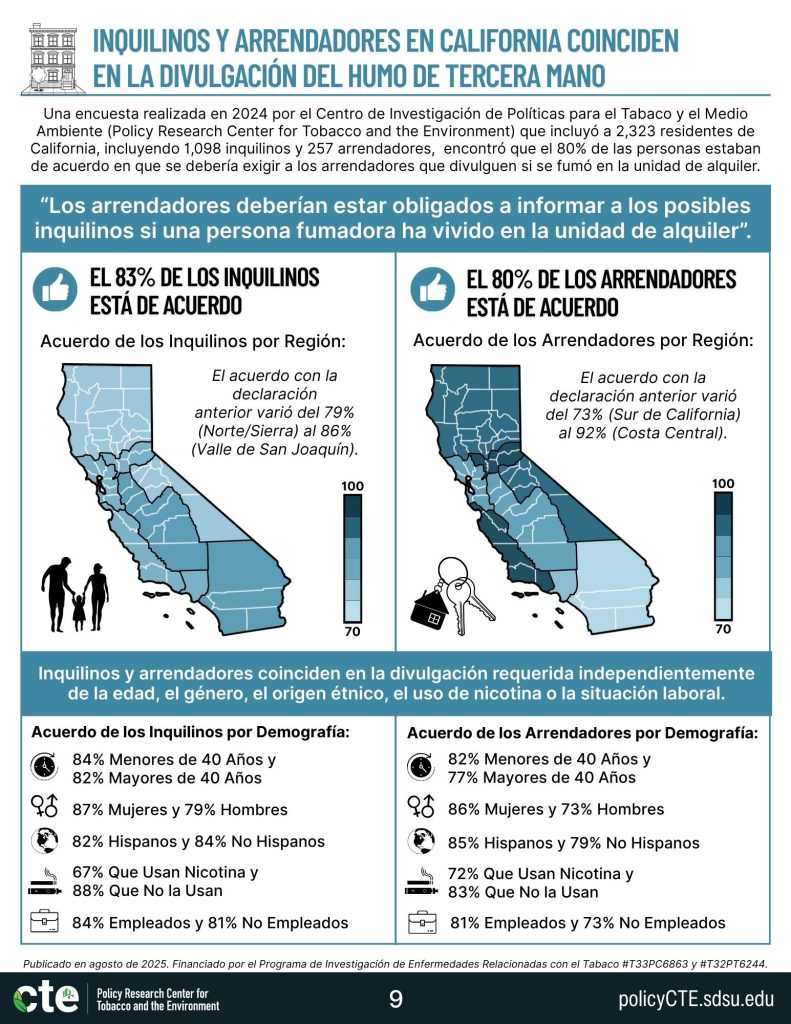 Overview
Overview
People who rent can face issues with thirdhand smoke if they do not know if previous residents smoked. In fact, renters may struggle even more than homeowners because units tend to have higher turnover of residents and more people around in neighboring units. Like with home agreements, the State of California does not require property managers to share with potential tenants if previous or neighboring tenants have smoked in rental units. The Center hopes to get this disclosure to become mandatory.
Rapid Response Projects (RRPs)
We asked these questions for this Policy Initiative:
- What are stakeholders’ thoughts on second- and thirdhand smoke disclosure?
- What do residents think about second- and thirdhand smoke?
- What are examples of effective disclosure policies?


